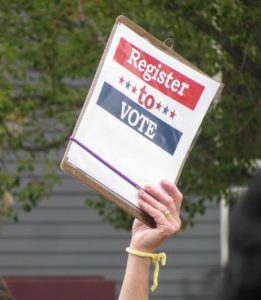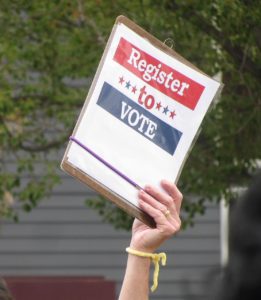September 29, 2018
 NORML is pleased to support the grassroots Voting Restoration Amendment campaign in Florida, run by Second Chances Florida. Florida remains one of only four states with a lifetime ban on voting for people with past felony convictions, even after they have completed their full sentence – including any probation, parole, fines, and restitution. We at NORML believe in second chances, and it is vital that voters have the opportunity to restore voting eligibility for those who have served their time and paid their debts.
NORML is pleased to support the grassroots Voting Restoration Amendment campaign in Florida, run by Second Chances Florida. Florida remains one of only four states with a lifetime ban on voting for people with past felony convictions, even after they have completed their full sentence – including any probation, parole, fines, and restitution. We at NORML believe in second chances, and it is vital that voters have the opportunity to restore voting eligibility for those who have served their time and paid their debts.
Sign up to make phone calls to Florida voters on October 1st!
Can’t make calls Monday? Click here to sign up to volunteer before the election.
This statewide ballot measure, organized by the grassroots group Second Chances Florida, seeks to restore the voting eligibility of Floridians with felony convictions after they complete all terms of their sentence, including parole or probation. The amendment would not apply to those convicted of murder or sexual offenses, who would continue to be permanently barred from voting unless the Governor and Cabinet vote to restore their voting eligibility on a case by case basis.
“Ensuring that all Americans have the eligibility to vote is crucial to the wellbeing of our democracy and is the only way that we will have elected officials in office that truly represent the will of their constituents. There is no legitimate reason that, after serving their time and paying their debts, to continue to deny former felons their vote,” stated NORML Executive Director Erik Altieri, “A large number of those being disenfranchised are guilty of non-violent marijuana possession offenses. In Florida, simple possession of 20 grams or more of marijuana for personal use is a felony charge and it is unAmerican to take away their eligibility to cast a ballot during any election.”
Currently, 1.4 million Floridians who have completed their sentences are permanently banned from voting, and the state of Florida ranks far ahead of any other state in the number of people excluded from the voting process entirely. Under the current system, Floridians with past felony convictions can only earn eligibility to vote by appearing in front of the Clemency Board, a process which can take more than two decades after a person’s completion of the terms of their sentence. The Florida Clemency Board, which is made up of only four members and meets only four times a year, hears less than 100 cases at a time, making the process almost impossible for many to complete. Because of this, a federal judge recently ruled Florida’s restoration process as arbitrary and unconstitutional.
If supported by 60% of voters on Election Day, Florida would join the ranks of 46 states and the District of Columbia in allowing people with past felony convictions to earn back their eligibility to vote.
Sign up NOW to make phone calls on October 1st in support!
Can’t make calls Monday? Click here to sign up to volunteer before the election.
You can also stay up to date on the campaign on Second Chances Florida’s website or Facebook page.
Forward,
The NORML Team











